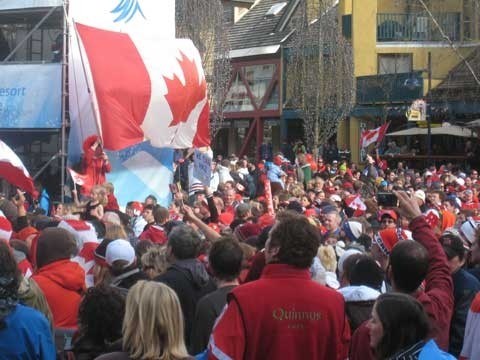For the first time in years, a joint partnership among Whistler's top economic agencies is staring into a new future - one not distracted by the fanfare of an international sporting event.
The Economic Agency Group (EAG) brings together Whistler's top economic organizations, including Whistler Blackcomb, Tourism Whistler, the Resort Municipality of Whistler and the Whistler Chamber of Commerce, with each representing different sectors of the local economy.
The group met to discuss strategy on Monday, Oct. 4 for the first time since 2007, when they last gathered to finalize plans for the 2010 Winter Olympics. At that time the decision was made to take a hiatus until after the Games were over, at which point they would reconvene to kick-start appropriate initiatives and priorities for the resort community in the decidedly different epoch.
"It gave us the opportunity to do a collective review of where we have been, where we are and looking forward at where we are going," said Tourism Whistler President, CEO and meeting organizer, Barrett Fisher. "Yes, we are working on our long-term plan and these are things each of our organizations do independently but it is important for the four organizations to come together to ensure that we have alignment. Really, these four organizations make up Whistler Inc. We are ultimately one company, one resort."
Fisher went on to emphasize each agency's importance to the community's viability and growth, admitting that while tourism is clearly the region's economic mainstay, all parties - not just Tourism Whistler - are necessary in their individual pursuits to make the engine run.
Though Whistler is unique in many aspects, it is affected by the same drivers that influence the global economy and it takes special management to guide its progress.
Members of the EAG don't feel the need to bring in consultants or an economic development officer at this time.
"I don't think we need someone to come in and tell us we need to build a film industry; we don't need someone to come in and tell us to build educational infrastructure. We are a built environment, we have everything we need," said Whistler councillor and chamber board member Chris Quinlan.
The chamber and the RMOW discussed bringing in an economic development officer four years ago, Quinlan said, but instead decided to put their money towards solving the labour and housing crisis.
"It's amazing what we can do here so I don't think we need someone from the outside to say, 'Here is where you need to go.'"
The municipality is currently reviewing and updating its Official Community Plan, which will greatly affect the direction of economic development within Whistler. That, plus the initiatives set out by the Whistler2020 document have been the focus of the municipality in the last year.
While a burgeoning education and film sector has the potential to make inroads and boost the community's resources and finances, Quinlan says it will only happen if they prove complimentary to the rest of the resort's business.
Keeping post-Games awareness high is a critical aspect of maintaining the spotlight - and thus tourist dollars - stays focused on Whistler. The success of the local business community is hinged upon its ability to adapt to the new market, one greatly shaped by the economic recession.
"We need to find more reasons to make people actually come to Whistler beyond just the weather and how the snow is. That's one of the things we look at with animation, the building of our cultural arts and heritage," continued Quinlan.
"If people know that every weekend there is something going on in Whistler, the chances are that they are going to make that decision on where they should go and spend their discretionary income in favour of the place they know something is happening at. They know something is going to be going on here that is vibrant and exciting."
While it is too early to outline any of the main challenges facing Whistler as outlined in the EAG meeting, Whistler Blackcomb President and COO Dave Brownlie said the meeting allowed for a reengagement and affirmation that tourism is directly tied to the success of the community on both a micro and macro level.
"The next step would be to look at the priorities that we see within the resort and then work with each of the organizations to see who is going to lead and take responsibility in those areas and determine a process to follow-up and make sure that we are making progress," Brownlie said.
He pointed to events as an example of a short term priority and driving air traffic to Vancouver as a long-term priority.
"Some of those things might be very short term and some might be very long term. It really depends on the priorities and which organization is best suited with both the people and the resources to go after it."




